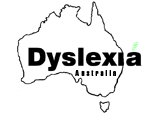Contact us
Mon to Fri: 9am – 5pm
Dyslexia Frequently Asked Questions
There seems to be a lot of confusion around this.
The following is from the updated DSM-5 (diagnostic manual):
1. Specific learning disorder with impairment in reading includes possible deficits in:
- Word reading accuracy
- Reading rate or fluency
- Reading comprehension
DSM-5 diagnostic code 315.00.
Note: Dyslexia is an alternative term used to refer to a pattern of learning difficulties characterized by problems with accurate or fluent word recognition, poor decoding, and poor spelling abilities.
There are some groups which describe types or labels such as “dysphonetic”( dysphonesia)and “dyseidetic” (dyseidesia) however it appears the diagnostic manual does not support these labels.
Parents and teachers are often encouraged to look for help that is “evidence-based” or phonics based (synthetic/analytic). Parents might naturally assume that “evidence-based” means something has been proven to work for dyslexic children. But the reality is different.
More information
https://literacyworldwide.org/docs/default-source/where-we-stand/ila-dyslexia-research-advisory-addendum.pdf?sfvrsn=85bca08e_4
https://ies.ed.gov/ncee/wwc/Intervention/737
hhttps://theconversation.com/seven-things-to-consider-before-you-buy-into-phonics-programs-50702
https://www.alea.edu.au/documents/item/1869
https://www.bdadyslexia.org.uk/news/appg-phonics-and-what-does-the-evidence-say
https://cdn.bdadyslexia.org.uk/uploads/documents/Presentation-Dr-Sharon-McMurray.pdf?v=1634216360
There is still no clear explanation that is universally accepted of what exactly constitutes dyslexia. If there is no universally accepted or scientifically proven cause for dyslexia there can be no universally or scientifically proven intervention for the remediation of dyslexia or reading difficulties.
There is no settled science of reading and that the research base and evidence base on reading and teaching reading is diverse and always in a state of change…
https://nepc.colorado.edu/publication/fyi-reading-wars
See News and Articles for more information.
Evidence based research indicates phonics/synthetic phonics is one of the components to start off learning to read
However, current research indicates …”if phonics instruction begins early…it should be completed by the end of year one…”(read more https://www.otago.ac.nz/news/news/otago020213.html) ).
Additionally, there is no research to support this is the best way for a dyslexic to read particularly after the initial instructional stages of reading (Grade 1 or the end of grade 2 at the latest). We have not found any particular “evidenced based” method meets the Institute of Education Sciences criteria as evidence based.
Dyslexia Australia supports an alternative if your child continues to struggle with phonics after year 2-3. However, we also support personal choice rather than one size must fit all.
More information
https://ies.ed.gov/ncee/wwc/Intervention/737
https://theconversation.com/seven-things-to-consider-before-you-buy-into-phonics-programs-50702
https://www.edweek.org/ew/articles/2003/04/30/33yatvin.h22.html
https://sbloom2.wordpress.com/2020/03/05/nrp-misrepresented/http://www.schoolsmatter.info/2012/05/naked-truth-about-national-reading.html
https://www.bdadyslexia.org.uk/news/appg-phonics-and-what-does-the-evidence-say
https://cdn.bdadyslexia.org.uk/uploads/documents/Presentation-Dr-Sharon-McMurray.pdf?v=1634216360
https://senmagazine.co.uk/articles/899-what-are-the-emotional-consequences-of-dyslexia.html
https://www.otago.ac.nz/news/news/otago020213.html
https://ies.ed.gov/ncee/wwc/Intervention/737
https://www.alea.edu.au/documents/item/1869
https://theconversation.com/seven-things-to-consider-before-you-buy-into-phonics-programs-50702
https://improvingliteracy.org/ask-an-expert/what-do-you-suggest-dyslexic-student-need
https://ies.ed.gov/ncee/wwc/Docs/InterventionReports/wwc_ortongill_070110.pdf
https://www.dyslexia-reading-well.com/support-files/orton_gillingham_literature_review.pdf
https://www.otago.ac.nz/otagobulletin/research/otago073434.html
https://theconversation.com/why-some-kids-cant-spell-and-why-spelling-tests-wont-help-20497
http://www.dyslexia-australia.com.au/PDF/MULTILIT-Evaluation-Final-Rpt-December-2012.pdf
Orton Gillingham or MSL (Multisensory Structured Language)
https://escholarship.org/uc/item/3jz3x80s
https://journals.sagepub.com/doi/10.1177/00224669060400030501
https://www.bdadyslexia.org.uk/news/appg-phonics-and-what-does-the-evidence-say
Teachers are the first line of fire. Here is something to consider:
https://www.alea.edu.au/documents/item/1869
https://ukla.org/downloads/Article_313_Extract_re-phonics.pdf
https://link.springer.com/content/pdf/10.1007/s10648-019-09515-y.pdf
https://link.springer.com/content/pdf/10.1007/s10648-019-09515-y.pdf
https://tactyc.org.uk/pdfs/2013-conf-clark.pdf
https://www.bdadyslexia.org.uk/news/appg-phonics-and-what-does-the-evidence-say
https://cdn.bdadyslexia.org.uk/uploads/documents/Presentation-Dr-Sharon-McMurray.pdf?v=1634216360
We recommend you check with the Department of Education in your State. Education QLD states: A State School … “does not need a formal diagnosis of a learning disability to provide students with support.
No. A consultation to discuss your concerns is sufficient. (fees apply)
There currently is no Australian Government funding available for the establishment of a National Accreditation program for dyslexia friendly school.
A qualified and registered Psychologist with experience and/or qualification in learning disabilities can assess and diagnose:
- Specific Learning Disabilities (reading, writing and math)
- Attention Disorders
- Intellectual disability
Additionally, some psychologist provide preliminary testing for:
- Speech and Language Disorders
- Central Auditory Processing difficulties
- Autism Spectrum Disorder
Psychologists use an array of diagnostic tools, including cognitive testing, to look at the whole picture and can diagnose the 3 Specific Learning Disabilities and many of the coexisting conditions.
Speech Therapists are trained to look at one area but not the whole picture. Speech Therapist cannot diagnose the 3 Specific Learning Disabilities or coexisting conditions. Additionally, they are not usually trained in cognitive testing.
Specialist Teachers cannot diagnose the 3 Specific Learning Disabilities or co- existing conditions.
Note: Pre-Screen, Screening or Pre-testing are tools used as a first step and should not be considered as an answer or formal diagnostic assessment of a students’ learning difficulties.
Note: Fees apply to our services. Pre-screening or on-line assessments are used only as a guide or a resource to assist parents or teachers.
© 2020 Dyslexia Australia. All Rights Reserved.

